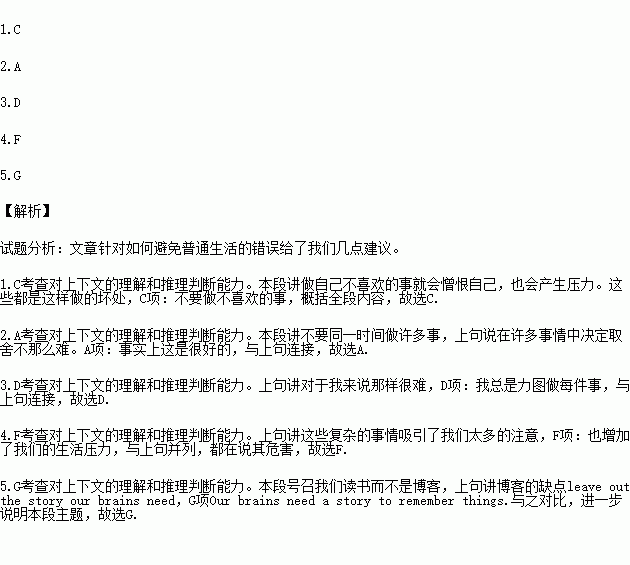题目内容
1.
Whenever you do things you don’t like, you will start to hate yourself a bit more. You will hate yourself for not being consistent. For doing things you know that you don’t want to do, another stress is right there.
Do less
This is one of the hardest things, especially for me. I’m doing too many things at the same time. In itself, doing many different things to figure out what works and what doesn’t isn’t that hard. 2..But at some point you need to
let go of the things that don’t work and focus on the things that work. And that’s the hardest part, at least for me.
3..And if you always try to make everything work, you’ll usually end up with nothing working at all.
Get rid of complicated things
There are many complicated(复杂的)things in life. Complicated relationships, complicated jobs, complicated whatever. what all of these things do is that they steal our focus. 4.
Read books, not blogs
Blogs consist of too much information for our brains to process. Blogs usually leave out the story our brains need. 5. Don’t believe me? Try it. What parts of this blog post do you remember? Probably none.
A. It’s actually quite good.
B. Never hate to be yourself
C. Don’t do things you don’t like.
D. I always try to make everything work.
E. Our brains can make up a good story.
F. They also add an extra stress to our lives.
G. Our brains need a story to remember things.

